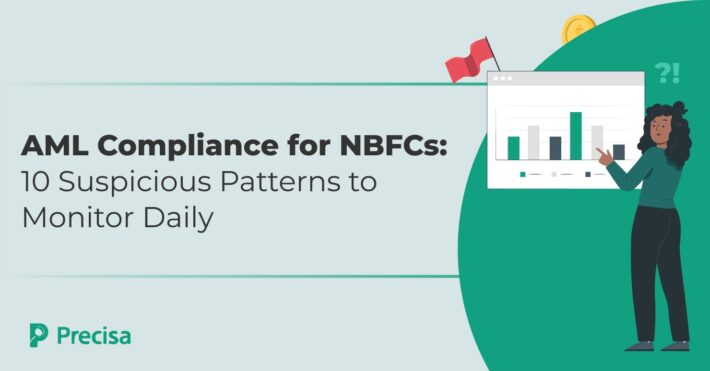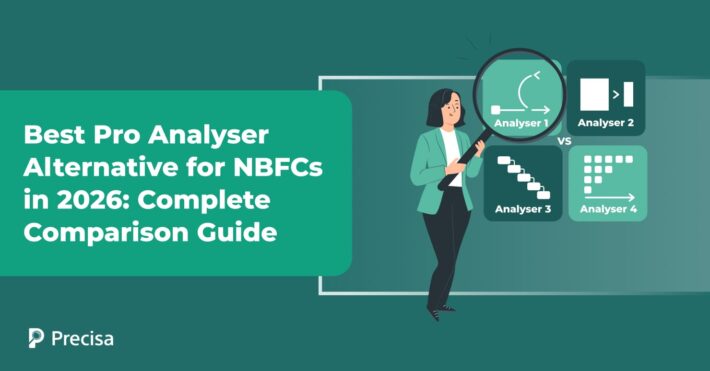A Brief Assessment of RBI Directive to Implement CFSS in NBFCs

Non-Banking Financial Companies (NBFCs) have long been an integral part of our financial system, serving as a supplement to the traditional banking industry. Today, they exist as a heterogenous group in contrast to the formal banks and provide an array of specific financial services. Without a doubt, NBFCs play a significant role in India’s financial inclusion initiatives, particularly in providing loans and advances to credit-underserved segments of the economy.
Although NBFCs are registered under the Companies Act of 1956, they are regulated by the Reserved Bank of India (RBI) under amended provisions of the RBI Act of 1934. Through a notification dated 23.02.22, the RBI has clarified that specific NBFCs must mandatorily implement Core Financial Services Solutions (CFSS). As a result, firms that do not currently use CFSS platforms will need to migrate their NBFC software.
A Short Analysis of RBI’s Guidelines on CFSS

The RBI issued a directive for NBFCs to adopt centralised software solutions in its circular on Scale Based Regulation (SBR): A Revised Regulatory Framework for NBFCs. However, the circular only vaguely instructed NBFCs with 10 branches or more to install Core Banking Solutions (CBS). It also said that a three-year trajectory, starting on 1.10.22, will be provided for the CBS implementation. The subsequent advisory provided specific instructions.
The memo issued in February 2022 refers to NBFC software as CFSS, which it says is ‘akin’ to CBS in banks. The regulator recognises the difference in operational requirements of the two groups of institutions and distinguishes between the software by limiting the term CBS to banks. It is important to understand that the RBI wants CFSS to have the functionality of centralised software while also meeting the specific needs of the NBFC’s business model.
To Whom Will The New Regulations Apply?
The norms will apply to NBFC- Middle Layer (NBFC-ML) and NBFC- Upper Layer (NBFC-UL) as defined in the SBR circular. Accordingly, NBFC firms with 10 or more ‘Fixed point service delivery units’ must implement CFSS within the specified timeframe.
The term ‘fixed point service delivery units’ refers to customer-facing, brick-and-mortar offices staffed by NBFC employees or outsourced agents. Also, the circular applies to businesses with at least ten such locations as of October 1, 2022.
NBFC-ML includes all deposit-taking NBFCs, non-deposit-taking NBFCs with an asset base of Rs.1000 crores and more, and NBFCs engaged in other activities like Infrastructure Finance Companies, Infrastructure Debt Fund- NBFCs, Core Investment Companies, Standalone Primary Dealers, and Housing Finance Companies. NBFC-UL will consist of those firms that the RBI has designated explicitly as requiring stricter regulatory provisions based on a set of criteria and scoring methodology.
However, here is the catch. When classifying NBFC-ML, for NBFCs that are a part of a common group or promoted by the same set of sponsors, the consolidated value of their assets is considered instead of their individual asset volumes. Simply put, despite the differences in their activities, RBI does not consider different NBFCs floated by the same group of promoters as separate entities.
The Schedule for Implementation
RBI anticipates the implementation process in stages and has given the specific NBFCs time till 30th September 2025 to complete the exercise. The Upper Layer NBFCs, however, must equip at least 70% of their ‘fixed point service delivery unit’ with CFSS on or before 30th September 2024.
Additionally, commencing with the quarter that ends on March 31, 2023, the NBFCs must report the quarterly status of CFSS implementation progress to the Senior Supervisory Manager of the RBI. The report must also include specific implementation milestones approved by the Board or Committee of the Board.
What Are The Benefits of Adopting CFSS?
Core financial services solutions will provide the NBFCs with the same advantages that CBS delivered to the banks. Some key benefits include the following.
- Customers will have reliable service availability across all access points
- Anywhere and anytime, extended service access through digital interfaces
- CFSS will integrate with and complement other systems of NBFC
- A centralised database, operating system, and management information system (MIS) facilitates the interoperability of various departments and improve data analysis capabilities
- Reporting becomes easier with custom-made reports auto-generated according to regulatory formats
Will CFSS Implementation Present Any Difficulties for NBFCs?
A software migration or implementation will involve some challenges. For example:
- Increased costs which will include, the costs of implementation, licensing fees, customisation charges, cost of training the staff, etc.
- Delays and disruptions in service delivery caused by the change in the existing operating model.
- Challenges related to data cleansing or rectification of data errors in legacy systems. Preparing data for compatibility with a new system is a laborious process.
Understanding the Implied Caveats
The decision to introduce CFSS accomplishes a two-pronged goal of improving the customer experience and enhancing the operational capabilities of NBFCs.
NBFCs must also ensure that the CFSS is implemented in accordance with the RBI’s existing guidelines in the Master Direction-Information Technology Framework for the NBFC Sector and Master Direction- Know Your Customer (KYC) Direction.
While the CFSS guideline currently excludes NBFC- Base Layer (NFBC-BL) and other NBFCs that don’t fall into the asset size and branch number criteria, it is logical to assume that these entities will have to follow the CFSS in the future. The circular does suggest that those outside the purview of the norms may adopt CFSS for their operational benefits.
Precisa provides innovative Account Aggregator Integration that simplifies and enhances NBFCs’ credit appraisal processes. With Finezza’s LOS, Precisa’s financial data analytics provide quicker, error-free credit decisions.
Contact us today for more information.



